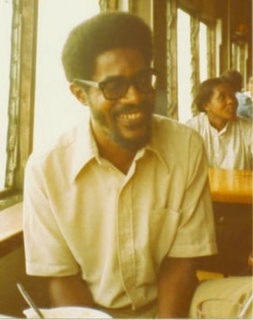A Quote by James Madison
The class of citizens who provide at once their own food and their own raiment, may be viewed as the most truly independent and happy. They are more: they are the best basis of public liberty, and the strongest bulwark of public safety. It follows, that the greater the proportion of this class to the whole society, the more free, the more independent, and the more happy must be the society itself.
Related Quotes
Men are qualified for civil liberty in exact proportion to their disposition to put moral chains upon their own appetites…in proportion as they are more disposed to listen to the counsels of the wise and good, in preference to the flattery of knaves. Society cannot exist, unless a controlling power upon will and appetite be placed somewhere; and the less of it there is within, the more there must be without. It is ordained in the eternal constitution of things, that men of intemperate minds cannot be free. Their passions forge their fetters.
The history of any nation follows an undulatory course. In the trough of the wave we find more or less complete anarchy; but the crest is not more or less complete Utopia, but only, at best, a tolerably humane, partially free and fairly just society that invariably carries within itself the seeds of its own decadence.
We must show that liberty is not merely one particular value but that it is the source and condition of most moral values. What a free society offers to the individual is much more than what he would be able to do if only he were free. We can therefore not fully appreciate the value of freedom until we know how a society of free men as a whole differs from one in which unfreedom prevails.
In a Society becoming steadily more privatized with private homes, cars, computers, offices and shopping centers, the public component of our lives is disappearing. It is more and more important to make the cities inviting, so we can meet our fellow citizens face to face and experience directly through our senses. Public life in good quality public spaces is an important part of a democratic life and a full life.
My basic position is that the more mixed the society and the more mobility there is in it, the better. That's what makes things interesting. When you get a homogenous society, it's very, very dull, whether that's all working class or all upper class, because everybody thinks the same, everybody looks the same.
We must make the building of a free society once more an intellectual adventure, a deed of courage. Unless we can make the philosophic foundations of a free society once more a living intellectual issue, and its implementation a task which challenges the ingenuity and imagination of our liveliest minds, the prospects of freedom are indeed dark. But if we can regain that belief in the power of ideas which was the mark of liberalism at its best, the battle is not lost.
The classics of Marxism talked of communism as a society to which a modern society should aspire, a society truly fair, where the relations of monetary exchange were not the priority but one wher the people's needs could be satisfied, and where people would not be worth more according to how much monetary wealth they acquired. Instead their value would be based on their contribution to society as a whole. It would be a society without class that would accept people based on their capabilities and their potential to contribute to that society.
Our entire society is based on discontent. People wanting more and more and more. Being constantly dissatisfied with their homes, their bodies, their décor, their clothes, everything – taking it for granted that that’s the whole point of life. Never to be satisfied. If you are perfectly happy with what you got, especially if what you got isn’t even all the spectacular then you’re dangerous. You’re breaking all the rules. You’re undermining the sacred economy. You’re challenging every assumption that society is built on.
The liberal appropriations made by the legislature of Kentucky for a general system of education cannot be too much applauded . . . . Learned institutions ought to be the favorite objects with every free people. They throw that light over the public mind which is the best security against crafty and dangerous encroachments on the public liberty . . . . What spectacle can be more edifying or more seasonable than that of liberty and learning, each leaning on the other for their mutual and surest support?































